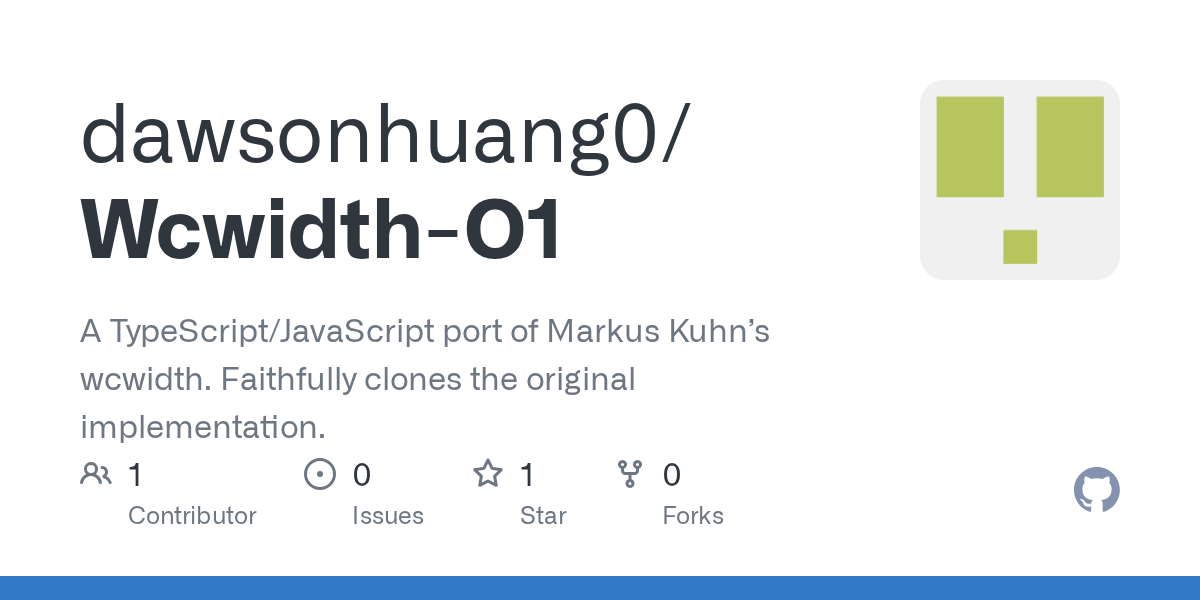dawsonhuang0/Wcwidth-O1: A TypeScript/JavaScript port of Markus Kuhn’s wcwidth. Faithfully clones the original implementation.
A TypeScript/JavaScript port of Markus Kuhn’s wcwidth and wcswidth
implementations, optimized to O(1).
These functions are defined in IEEE Std 1003.1 (POSIX).
- ⚡️ Instant O(1) lookup time
- 🌏 Full Unicode 15.1 coverage
Install Wcwidth-O1 via npm:
import wcwidth from 'wcwidth-o1';
const example1 = wcwidth('a'); // 1
const example2 = wcwidth('好'); // 2
const example3 = wcwidth('😊'); // 2
or
import { wcwidth, wcswidth, wcswidthCjk } from 'wcwidth-o1';
const example = wcwidth('a'); // 1
const example1 = wcswidth('hi'); // 2
const example2 = wcswidth('안녕하세요'); // 10
const example3 = wcswidth('😊こんにちは'); // 12
const example4 = wcswidthCjk('°C'); // 3
wcwidth(), wcwidthCjk():
char: A single-character string to measure.
wcswidth(), wcswidthCjk():
str: Input string to evaluate.n: Max characters to process (defaults to full length).
In fixed-width terminals, most Latin characters take up one column, while East
Asian (CJK) ideographs usually take up two. The challenge is deciding how many
“cells” each Unicode character should occupy so that text aligns correctly.
The Unicode standard defines width classes:
- Wide (W) and Fullwidth (F) – always 2 columns
- Halfwidth (H) and Narrow (Na) – always 1 column
- Ambiguous (A) – 1 column normally, but 2 in CJK compatibility mode
- Neutral (N) – treated as 1 column here for simplicity
Other rules include:
U+0000(null) – width 0- Control characters –
-1 - Combining marks – width 0
- Soft hyphen (
U+00AD) – width 1 - Zero width space (
U+200B) – width 0
This logic originates from Markus Kuhn’s reference implementation and is widely
used in terminal emulators to ensure consistent alignment.
See Unicode TR#11 for more details.
Found something odd?
Feel free to open an issue.
Distributed under the MIT License.
See LICENSE for more information.


